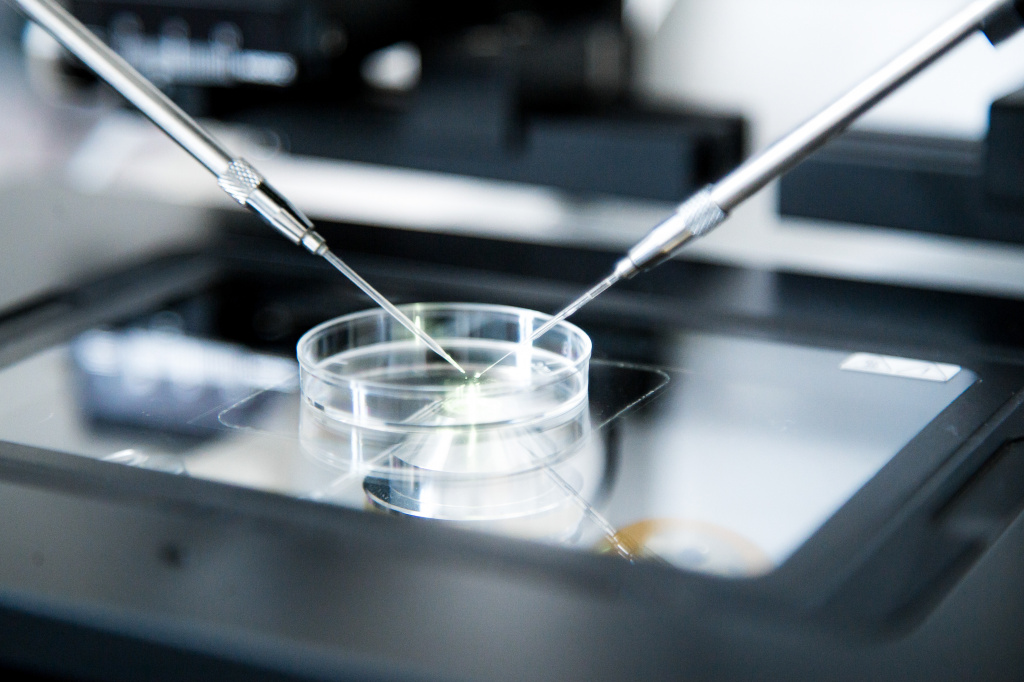Preimplantation genetic testing for the detection of monogenic diseases (PGT-M)

Each human cell contains chromosomes that were inherited from each of the parents: 23 from the father and 23 from the mother. Thus, each person has 23 pairs of chromosomes, and there are 46 in total. Chromosomes consist of molecules called DNA. Our DNA is organized into small fragments called genes. When the function of a gene changes due to a mutation, a monogenic disease occurs in a particular gene sequence.
PGT-M is a study that allows you to determine whether an embryo is healthy or sick in the case of a specific monogenic disease.
The test is developed specifically for each pair and their genetic mutations in preparation for PGT-M. By analyzing the DNA of each embryo, it is possible to identify healthy ones in order to carry out their transfer in the future.
Why go through a PGT-M study?
- A higher chance of having a healthy child: the possibility of having a child without a monogenic disease in couples with high genetic risk increases.
- Possibility of PGT-M + PGT-A: We can perform PGT-M and PGT-A to screen for aneuploids from one biopsy.
- The test includes analysis for 300 different diseases.
- Accuracy of results 98-99%.
PGT-M is recommended if you have:
- There is a child who has a genetic disease.
- You and your partner are healthy, but you are the carrier of one monogenic disease.
- You or your partner has been diagnosed with a monogenic genetic disease, or a family history has a genetic disease.